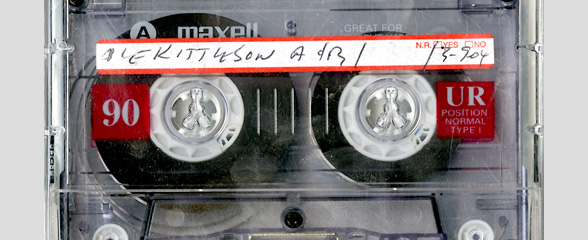 | [Content warning: The interview includes a section where racial slurs are used in the context of acting and performing productions that have a racial focus.]
David Lewis Hammarstrom interviews Ole Kittleson about his involvement in the revival of "Flower Drum Song" as a school production at the School for Creative and Performing Arts in San Diego. The main topics of discussion include ethnic diversity when casting actors and actresses for a production, his thoughts on the different productions of “Flower Drum Song” throughout the years, and his involvement in their various iterations. This interview is one of a series of 18 interviews that author David Lewis Hammarstrom conducted in 2003 as part of research for his book, Flower Drum Songs: The Story of Two Musicals (2006).
| 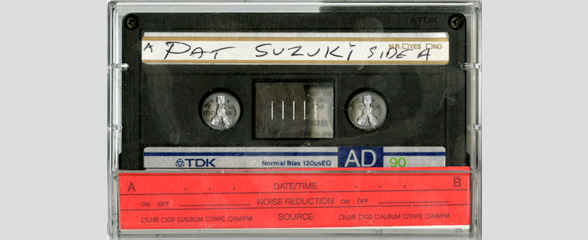 | Pat Suzuki is interviewed by David Lewis Hammarstrom about her role as Linda Low in the original cast of the 1958 “Flower Drum Song” Broadway musical. Topics of discussion include her experiences working with the production team and other cast members, thoughts on the later iterations of “Flower Drum Song,” and confirmation of certain rumors or speculations surrounding specific members of the production. Other major topics include her appearance on television on "Tonight Starring Jack Paar" and David Henry Hwang’s revival of “Flower Drum Song.” This interview is one of a series of 18 interviews that author David Lewis Hammarstrom conducted in 2003 as part of research for his book, Flower Drum Songs: The Story of Two Musicals (2006). | 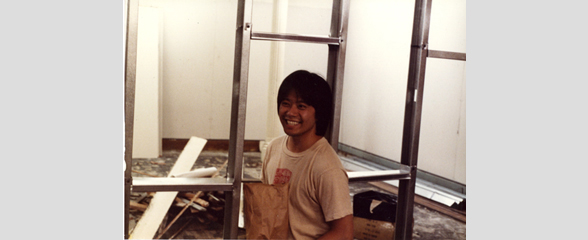 | Charlie Lai along with Jack Tchen are founders of the Chinatown History Project, which has gone on to become the Museum of Chinese in America. In this five part interview conducted over the course of several months Charlie talks about his childhood in Hong Kong and how his family eventually decided to immigrate to the United States when he was nine years old. He talks about living with his uncle when they first arrive in the states and saying on Long Island. His family eventually moves into their own place in Manhattan. Later he recounts his time at Princeton and his community organizing effort to recruit more Asian students to the school even though he was not fond of the institution. While still a student at Princeton he spent summers working at Basement Workshop, which was where he met Jack Tchen. Basement had many issues with inter office politics and eventually closed. Charlie and Jack began discussing ideas, which would turn into the Chinatown History Project at 70 Mulberry Street. Charlie eventually steps down as executive director of the museum because he didn’t feel he could take it to the next level. But is called back when his replacement Fay Chew needs his help in growing the organization into a bigger space. Charlie recounts in depth his fundraising efforts with Maya Lin in the wake of the 9-11 attack to try and find the museum a new home, which ends up being 215 Centre Street. He makes mention of his personal life and marriage to Pat, whom he met while community organizing in college. After leaving the museum for a second time Charlie talks about working a few months at the Chinatown Manpower Project. | 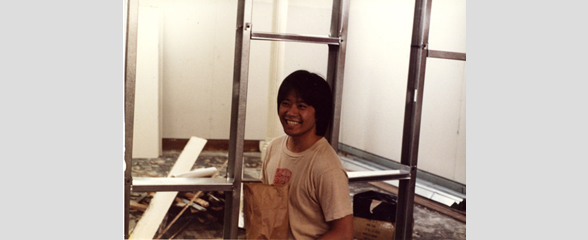 | Charlie Lai along with Jack Tchen are founders of the Chinatown History Project, which has gone on to become the Museum of Chinese in America. In this five part interview conducted over the course of several months Charlie talks about his childhood in Hong Kong and how his family eventually decided to immigrate to the United States when he was nine years old. He talks about living with his uncle when they first arrive in the states and saying on Long Island. His family eventually moves into their own place in Manhattan. Later he recounts his time at Princeton and his community organizing effort to recruit more Asian students to the school even though he was not fond of the institution. While still a student at Princeton he spent summers working at Basement Workshop, which was where he met Jack Tchen. Basement had many issues with inter office politics and eventually closed. Charlie and Jack began discussing ideas, which would turn into the Chinatown History Project at 70 Mulberry Street. Charlie eventually steps down as executive director of the museum because he didn’t feel he could take it to the next level. But is called back when his replacement Fay Chew needs his help in growing the organization into a bigger space. Charlie recounts in depth his fundraising efforts with Maya Lin in the wake of the 9-11 attack to try and find the museum a new home, which ends up being 215 Centre Street. He makes mention of his personal life and marriage to Pat, whom he met while community organizing in college. After leaving the museum for a second time Charlie talks about working a few months at the Chinatown Manpower Project. | 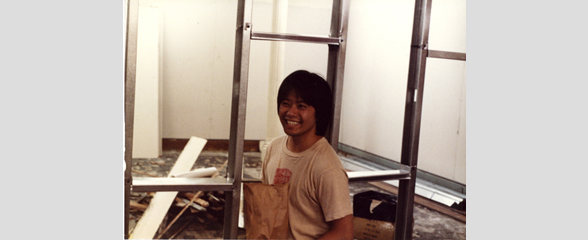 | Charlie Lai along with Jack Tchen are founders of the Chinatown History Project, which has gone on to become the Museum of Chinese in America. In this five part interview conducted over the course of several months Charlie talks about his childhood in Hong Kong and how his family eventually decided to immigrate to the United States when he was nine years old. He talks about living with his uncle when they first arrive in the states and saying on Long Island. His family eventually moves into their own place in Manhattan. Later he recounts his time at Princeton and his community organizing effort to recruit more Asian students to the school even though he was not fond of the institution. While still a student at Princeton he spent summers working at Basement Workshop, which was where he met Jack Tchen. Basement had many issues with inter office politics and eventually closed. Charlie and Jack began discussing ideas, which would turn into the Chinatown History Project at 70 Mulberry Street. Charlie eventually steps down as executive director of the museum because he didn’t feel he could take it to the next level. But is called back when his replacement Fay Chew needs his help in growing the organization into a bigger space. Charlie recounts in depth his fundraising efforts with Maya Lin in the wake of the 9-11 attack to try and find the museum a new home, which ends up being 215 Centre Street. He makes mention of his personal life and marriage to Pat, whom he met while community organizing in college. After leaving the museum for a second time Charlie talks about working a few months at the Chinatown Manpower Project. | 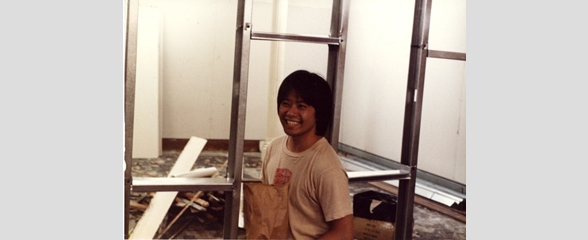 | Charlie Lai along with Jack Tchen are founders of the Chinatown History Project, which has gone on to become the Museum of Chinese in America. In this five part interview conducted over the course of several months Charlie talks about his childhood in Hong Kong and how his family eventually decided to immigrate to the United States when he was nine years old. He talks about living with his uncle when they first arrive in the states and saying on Long Island. His family eventually moves into their own place in Manhattan. Later he recounts his time at Princeton and his community organizing effort to recruit more Asian students to the school even though he was not fond of the institution. While still a student at Princeton he spent summers working at Basement Workshop, which was where he met Jack Tchen. Basement had many issues with inter office politics and eventually closed. Charlie and Jack began discussing ideas, which would turn into the Chinatown History Project at 70 Mulberry Street. Charlie eventually steps down as executive director of the museum because he didn’t feel he could take it to the next level. But is called back when his replacement Fay Chew needs his help in growing the organization into a bigger space. Charlie recounts in depth his fundraising efforts with Maya Lin in the wake of the 9-11 attack to try and find the museum a new home, which ends up being 215 Centre Street. He makes mention of his personal life and marriage to Pat, whom he met while community organizing in college. After leaving the museum for a second time Charlie talks about working a few months at the Chinatown Manpower Project. | 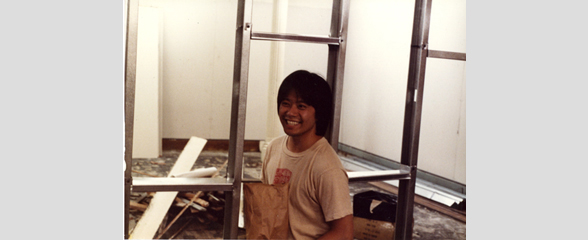 | Charlie Lai along with Jack Tchen are founders of the Chinatown History Project, which has gone on to become the Museum of Chinese in America. In this five part interview conducted over the course of several months Charlie talks about his childhood in Hong Kong and how his family eventually decided to immigrate to the United States when he was nine years old. He talks about living with his uncle when they first arrive in the states and saying on Long Island. His family eventually moves into their own place in Manhattan. Later he recounts his time at Princeton and his community organizing effort to recruit more Asian students to the school even though he was not fond of the institution. While still a student at Princeton he spent summers working at Basement Workshop, which was where he met Jack Tchen. Basement had many issues with inter office politics and eventually closed. Charlie and Jack began discussing ideas, which would turn into the Chinatown History Project at 70 Mulberry Street. Charlie eventually steps down as executive director of the museum because he didn’t feel he could take it to the next level. But is called back when his replacement Fay Chew needs his help in growing the organization into a bigger space. Charlie recounts in depth his fundraising efforts with Maya Lin in the wake of the 9-11 attack to try and find the museum a new home, which ends up being 215 Centre Street. He makes mention of his personal life and marriage to Pat, whom he met while community organizing in college. After leaving the museum for a second time Charlie talks about working a few months at the Chinatown Manpower Project. | 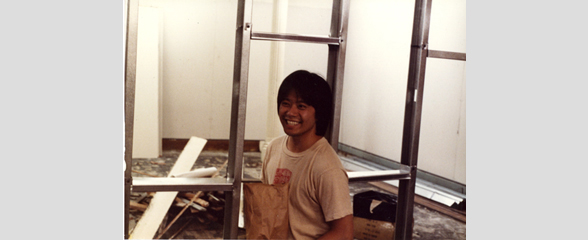 | Charlie Lai along with Jack Tchen are founders of the Chinatown History Project, which has gone on to become the Museum of Chinese in America. In this five part interview conducted over the course of several months Charlie talks about his childhood in Hong Kong and how his family eventually decided to immigrate to the United States when he was nine years old. He talks about living with his uncle when they first arrive in the states and saying on Long Island. His family eventually moves into their own place in Manhattan. Later he recounts his time at Princeton and his community organizing effort to recruit more Asian students to the school even though he was not fond of the institution. While still a student at Princeton he spent summers working at Basement Workshop, which was where he met Jack Tchen. Basement had many issues with inter office politics and eventually closed. Charlie and Jack began discussing ideas, which would turn into the Chinatown History Project at 70 Mulberry Street. Charlie eventually steps down as executive director of the museum because he didn’t feel he could take it to the next level. But is called back when his replacement Fay Chew needs his help in growing the organization into a bigger space. Charlie recounts in depth his fundraising efforts with Maya Lin in the wake of the 9-11 attack to try and find the museum a new home, which ends up being 215 Centre Street. He makes mention of his personal life and marriage to Pat, whom he met while community organizing in college. After leaving the museum for a second time Charlie talks about working a few months at the Chinatown Manpower Project. | 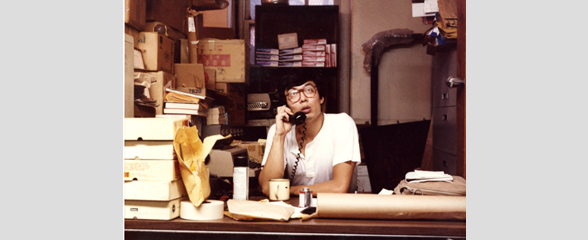 | Jack Tchen along with Charlie Lai are founders of the Chinatown History Project, which has gone on to become the Museum of Chinese in America. In this multiple part interview Tchen discusses growing up in Wisconsin and his family’s ties to China. He then recounts his time at Madison college and how he got more involved in activism and Asian American studies. Next he discusses his time working at Basement workshop, how he met Charlie and working on exhibitions. He left Basement workshop with Charlie and they created the eight pound livelihood exhibition. After, Tchen left the Chinatown history project he started teaching at Queen college and NYU and started the Asian Studies program at NYU. Over the years Tchen often went back to help MOCA especially when the museum expanded and created the core exhibition. He discusses his personal life and his family, the interview ends with a discussion of the challenges of change in museums and MOCA. | 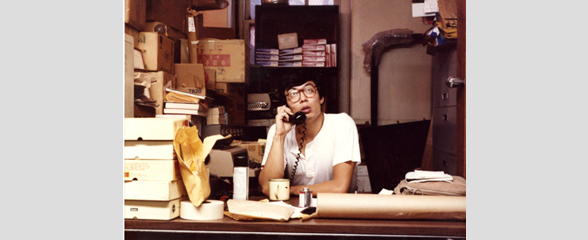 | Jack Tchen along with Charlie Lai are founders of the Chinatown History Project, which has gone on to become the Museum of Chinese in America. In this multiple part interview Tchen discusses growing up in Wisconsin and his family’s ties to China. He then recounts his time at Madison college and how he got more involved in activism and Asian American studies. Next he discusses his time working at Basement workshop, how he met Charlie and working on exhibitions. He left Basement workshop with Charlie and they created the eight pound livelihood exhibition. After, Tchen left the Chinatown history project he started teaching at Queen college and NYU and started the Asian Studies program at NYU. Over the years Tchen often went back to help MOCA especially when the museum expanded and created the core exhibition. He discusses his personal life and his family, the interview ends with a discussion of the challenges of change in museums and MOCA. |









